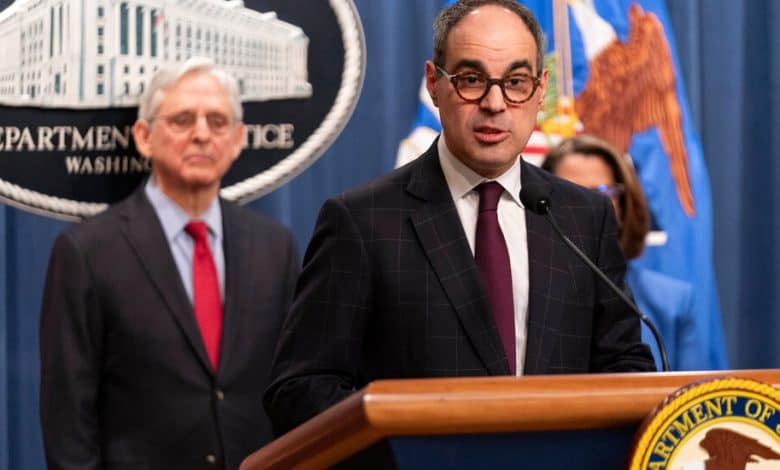How the Fight Against Apple Could Redefine Antitrust Law


Justice Department officials, including the antitrust chief Jonathan Kanter, foreground, are trying to push the boundaries of regulations with the new lawsuit against Apple.Credit…Jose Luis Magana/Associated Press
A shot at Apple’s moneymaker
With its antitrust lawsuit against Apple, the Biden administration has joined a growing list of regulators taking on the iPhone giant. But the Justice Department is taking a more ambitious approach than the others by aiming at the company’s tight control of the iPhone ecosystem, which officials say hurts consumers and developers while producing giant profits.
If successful, the case could upend a business model that has made Apple one of the most profitable companies in history — but victory would require courts to accept a redefinition of decades-old antitrust law.
Prosecutors zeroed in on Apple’s efforts to lock-in consumers. The Justice Department argues that the company unlawfully restricted competition by blocking key iPhone features to prevent consumers from switching devices.
Apple is profiting “not by making its own products better, but by making other products worse,”Attorney General Merrick Garland said on Thursday.
The lawsuit identified five areas: smart watches, digital wallets, cloud-based gaming, messaging apps — yes, the green-bubble debate is key here — and so-called “super apps” that bundle different programs. (It also suggests that Apple’s behavior affects an even wider array of products, including cars.)
Apple said the approach amounted to excessive interference in business. “If successful, it would hinder our ability to create the kind of technology people expect from Apple — where hardware, software, and services intersect,” a spokeswoman said, adding that it would let the government have a heavy hand in designing people’s technology.
